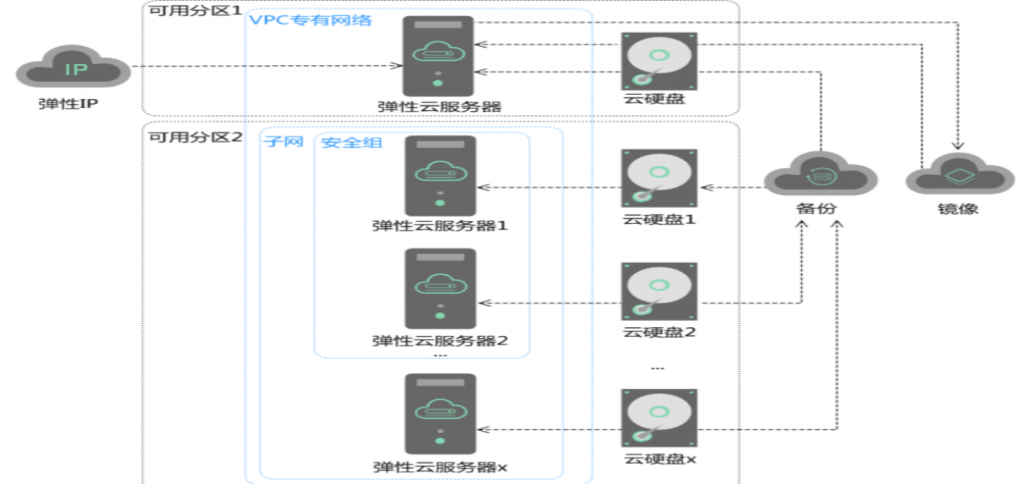An Elastic Cloud Server (ECS) is a computing server consisting of vCPUs, memory, image, and Elastic Volume Service (EVS) disks that allow on-demand allocation and elastic scaling. ECSs integrate Virtual Private Cloud (VPC), virtual firewalls, and multi-data-copy capabilities to create an efficient, reliable, and secure computing environment. This ensures stable and uninterrupted operation of services. After creating an ECS, you can use it like using your local computer or physical server.
ECSs support self-service creation, modification, and operation. You can create ECSs by specifying the vCPU, memory, image specifications, and login authentication. After creating an ECS, you can modify its specifications as required.
System Architecture
ECS works with other products and services to provide computing, storage, network, and image installation functions.
– ECSs are deployed in multiple availability zones (AZs) connected with each other through an internal network. If an AZ becomes faulty, other AZs in the same region will not be affected.
– With the Virtual Private Cloud (VPC) service, you can build a dedicated network, set the subnet and security group, and allow the VPC to communicate with the external network through an EIP (bandwidth support required)
– With the Image Management Service (IMS), you can install images on ECSs, or create ECSs using private images and deploy services quickly.
– The Elastic Volume Service (EVS) provides storage and Volume Backup Service (VBS) provides data backup and recovery functions


